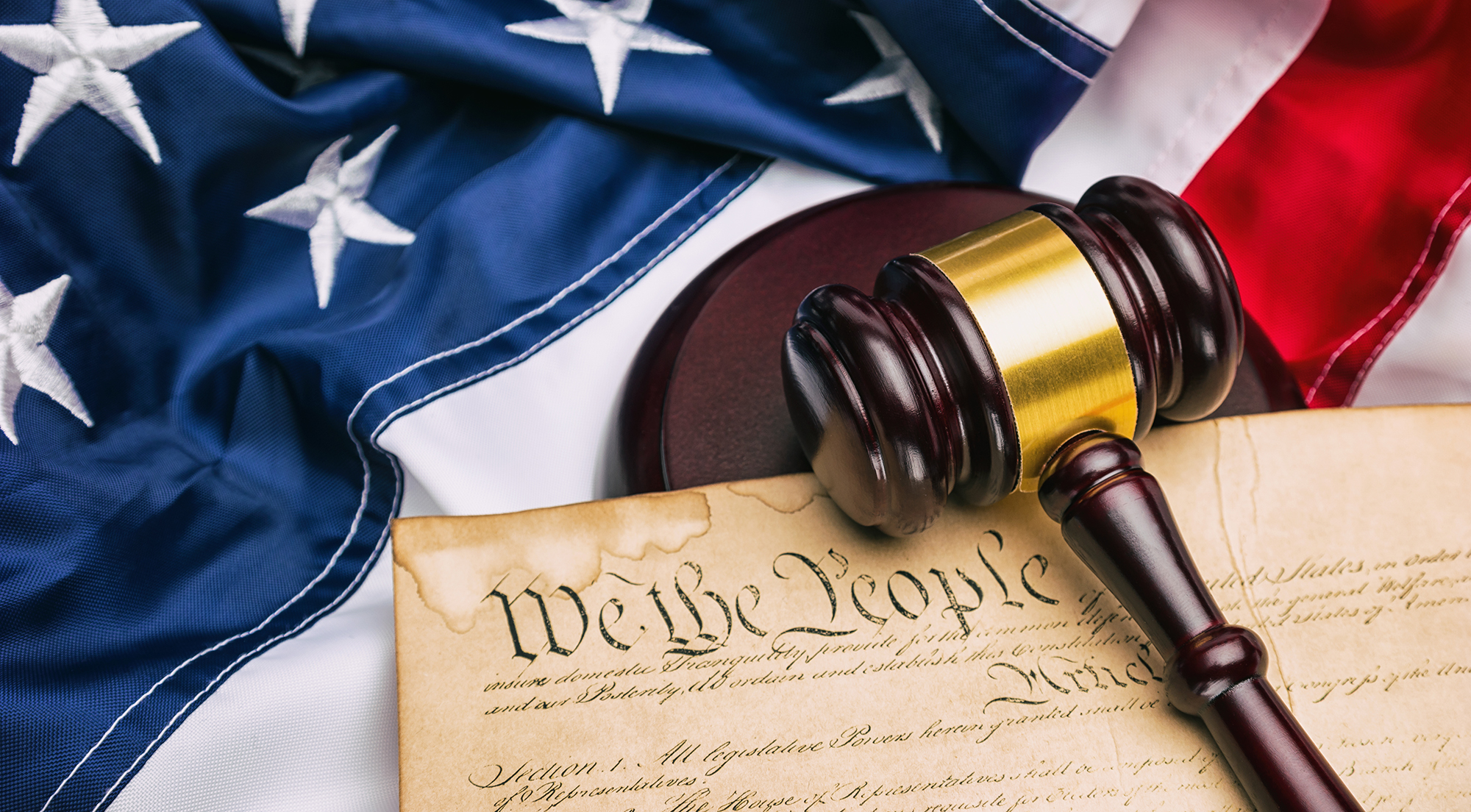CAC’s Work With Members Of Congress As Friends Of The Court

The role of Congress in our three-branch system of government is increasingly in the spotlight, as the investigations into President Trump’s impeachable offenses intensify. While the process of impeachment follows a path set out in the Constitution—whereby Congress may act as a check on the executive or judicial branches when officials commit treason, bribery, or other high crimes and misdemeanors—Members of Congress often interact with those two branches of government in far lower-profile ways, as well.
For example, when the work of Congress is implicated in the course of litigation, the judicial branch of government comes into play. Such cases are brought before federal judges whose job it is to interpret the law and the Constitution, and decide how a dispute over Congress’s work should be resolved. In those situations, Members of Congress can lend their voices as “friends of the court”—amici curiae–to help explain to judges why ruling one way versus another comports with the views of Congress.
Constitutional Accountability Center is proud to help Members of Congress play this amicus role, as we have filed briefs on behalf of Members of the House and Senate in dozens of cases over the years, from defense of the Affordable Care Act and the congressionally-delegated power of President Obama to implement the Deferred Action for Childhood Arrivals (DACA) policy, to the power of Congress to protect consumers, as well as how the Clean Air Act was intended to operate. We have filed 34 briefs on behalf of Members of Congress in the federal courts.
At the Supreme Court this term, our amicus work on behalf of Members of Congress continues in two major cases now pending before the justices, one focusing on immigration and another on racial discrimination. In the immigration case, Department of Homeland Security v. Regents of the University of California (the lead case at the Court among a trio on the same issue), we filed a brief on behalf of Members of the House and Senate—led by Senator Richard Durbin (D-IL) and Representative Zoe Lofgren (D-CA-19). In our brief, we explain why President Trump’s attempt to rescind DACA is unlawful, arguing that DACA—developed and implemented by the Obama Administration—was a valid exercise of executive authority, and that Trump’s reason for ending the program itself is unlawful. Our clients are in a strong position to know: Congress has long delegated significant discretion to the executive branch to implement the nation’s immigration laws and set enforcement priorities, which the executive branch has repeatedly exercised by granting deferred action, both on an ad hoc basis and by establishing categorical threshold criteria for deferral. Congress has consistently and affirmatively approved of this practice. Contrary to President Trump’s claims, DACA was a lawful exercise of executive discretion.
The fact is, President Trump knows that DACA is incredibly popular—and that devastating the lives and families of DACA recipients draws righteous outrage—so he wants the Supreme Court to do his dirty work and say Trump had no choice but to terminate the policy. Early in Trump’s tenure, Chief Justice John Roberts was willing to go along with the President by upholding his discriminatory Muslim travel and refugee ban. Last term, however, Roberts stood up to Trump’s contrived legal arguments in the Census case. The question now is straightforward: Where will Chief Justice Roberts be this term, when DACA recipients need him to follow the law and stand up to the President?
The second dispute at the Supreme Court this term in which CAC submitted an amicus brief on behalf of Members of Congress—led by Senator Kamala Harris (D-CA)—is in a racial discrimination case, Comcast Corp. v. National Association of African American–Owned Media and Entertainment Studios Networks, Inc. For years, comedian and entrepreneur Byron Allen’s media company, Entertainment Studios Networks, Inc., asked Comcast to carry its television channels. Comcast, however, refused any such contract. In response, Allen’s company and the National Association of African American–Owned Media sued, alleging that Comcast’s refusal was racially motivated, in violation of federal law. Among other things, in their lawsuit, Allen and NAAAOM allege that in refusing to contract with Allen’s company, a Comcast executive said, “We’re not trying to create any more Bob Johnsons,” a reference to the billionaire co-founder of BET, Black Entertainment Television. Comcast argues that plaintiffs like Allen’s company can’t sue under a federal law known as Section 1981 when discriminatory intent is not the “but-for cause” of the decision. In other words, Comcast argues Allen should have to show that the denial of the contract wouldn’t have happened without Comcast’s alleged racial discrimination.
But that’s the wrong standard under Section 1981. As we show in our brief, the plain text of Section 1981 does not require a showing of but-for causation. In fact, as originally drafted, the provision that became Section 1981 contained causal language, but Congress removed that language before passing the law. The structure and history of Section 1981 confirm that the statute, by design, prohibits any racial discrimination in the making and enforcement of contracts, regardless of whether that discrimination is a but-for cause of the parties’ failure to enter into an agreement. Any racial discrimination that infects the contract-formation process necessarily deprives those involved of that right, even if the outcome of the contract negotiations remains the same. We hope the Supreme Court agrees.
The views of Members of Congress can be incredibly helpful and compelling for any judge looking for insight on its laws and policies that end up in their courtroom. We are honored to help Members provide this service—in federal trial courts all the way up to the Supreme Court—on issues that affect all of us in America. While we at CAC are playing our part in the outsized, highly visible process of impeachment—providing our analysis of the Constitution’s text, history, and values on the subject as often as we can—the other work we do is just as important, if not quite as conspicuous.
